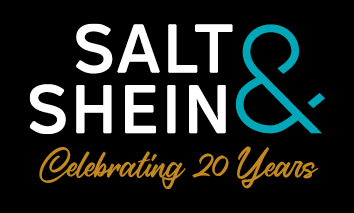Ethical behaviour and its significance to communications
The difference between right and wrong has been debated between philosophers for thousands of years, with Plato, Socrates and Aristotle only a few of the many mentionable names from ancient times. Yet, there is no black and white approach to deciding what is morally acceptable, particularly in the corporate world, as definitions change with time. So…
The difference between right and wrong has been debated between philosophers for thousands of years, with Plato, Socrates and Aristotle only a few of the many mentionable names from ancient times.
Yet, there is no black and white approach to deciding what is morally acceptable, particularly in the corporate world, as definitions change with time. So what does this mean for today’s communication specialists in regards to ethical conduct?
Let’s take a look at the implications of unethical behaviour as well as things to consider as a professional.
The problem with ethics and reputation’
We have come a long way since Edward Bernays famously proclaimed the late 19th century “the public be damned era”.
However, severe criticism has followed communication specialists throughout history and led to the distinct association of unethical behaviour and reputation damage. Corporate scandals, such as Enron’s downfall of the 1990’s, have ultimately added to a persistent public feeling of mistrust.
Now that key words such as corporate social responsibility, transparency and ethics have developed into ever-critical terms for the profession, maintaining ethical practises has taken on new meaning in a digitalised world. To maintain a good reputation, ethical behaviour is paramount for any professional communicator.
How to act ethically
While ethics is not something that can be seen as clear-cut, there are some guidelines to consider.
First and foremost, telling the truth and being up front about your company’s – or your own – actions lays the foundation for good and lasting relationships with stakeholders. Be it an external or internal stakeholder, without trust and transparency your reputation is unlikely to stand the test of time.
The responsibility of ethical behaviour goes beyond voluntary declarations and the signing of codes of ethics. Morally sound behaviour needs to be at the heart of a professional’s conduct – something that, when not followed, can lead to costly court cases.
Only last year did the former Zimbabwean ambassador to Australia win a defamation case after false allegations were made about her. As good communication specialist, acting within the law and avoiding slander and libel is of utmost importance, particularly in a public-facing role.
Ultimately, two-way communication is the basis of any true, transparent and overall ethical conduct. Disregarding any unforeseen circumstances, strong ethics are at the core of an organisation’s credibility and therefore ability to build and maintain a positive reputation.
Discover insights.
Creating messages that cut through social media, news cycles and even the humble inbox has never been easy, but, with more noise across more channels, it’s become more important than ever to create messages that stand out and land with impact. Visual communications tools are gaining traction as a way of shaping messages that hit…
Looking for greater choice in the contract options available to you? Having history and rapport with a specialist recruiter like Fraser Clapcott will open doors to opportunities you may have missed for yourself, that add value for both contractor and employer. In the current climate of uncertainty, a willingness and propensity for flexibility comes with…
If you’ve been ruminating on changing-up your comms career, now may be the ideal time to talk with your trusted recruiter about making a move. Salt & Shein Director, Lucy Newcomb, sees significant scope for motivated communicators to broaden their career horizons, and make the job of their dreams a reality, in 2023. “A rapidly…







